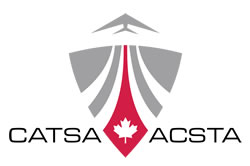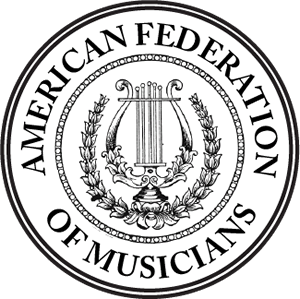Benefits & Services
Collectively Negotiated and Promulgated Agreements
TMA149 and its parent unions CFM and AFM spend the largest portion of their time and resources negotiating, promulgating and defending agreements with producers, venues, and engagers in the live and recorded music and the general entertainment and media sphere. When a TMA149 member works at, or for, a producer, venue or engager that is a signatory to an agreement with TMA149, CFM or AFM that member will receive the minimum fees and benefits negotiated with that producer, venue or engager. Minimum scales are just that – minimums. Members may negotiate above scale, but in many areas these minimum fees are above what non-signatory producers would provide.
Benefits that are often if not always negotiated include:
- Minimum fees for performing, recording, arranging, copying
- Minimum fees for performing or recording on more than one instrument (doubling)
- Minimum fees for performing or recording electronic instruments
- Minimum fees for the re-use and new use of recorded material
- Pension Payments
- Work Hours
- Breaks
- Health & Safety Provisions
- Anti-Discrimination and Anti-Harassment Measures
To see all TMA149 negotiated and promulgated agreements please go to:
TMA Tariff of Fees, Agreements and Contracts
To see all CFM negotiated and promulgated agreements please go to:
CFM Agreements & Contracts
To see all AFM negotiated and promulgated agreements please go to:
AFM Sound Recording Agreements & Scales
AFM Film & Television Agreements & Scales
Legal & Contract Defense
When a TMA149 member performs under a TMA149 or CFM/AFM negotiated agreement or when they use a TMA149 Live Performance Contract for Canada the Local has the responsibility to defend the member’s interest when that contract is breached, such as when payment is not made. Further, in many cases the collective Contract Defence Fund will pay basic fees in lieu of the amount not paid until the breach’s resolution.
Professional musicians know there’s nothing like getting paid for a gig. The American Federation of Musicians and its Locals have negotiated collective bargaining agreements with a wide variety of employers, such as the major recording companies, symphony orchestra managements, and others, to insure that musicians get paid for playing those types of jobs.
But not all gigs fall under those categories. Many performances, like those in clubs, stage shows, and for private parties, etc., are negotiated directly between the musician and the purchaser. Unfortunately, some professionals risk their wages by not filing signed contract forms – and without a contract on file with the Local where the performance is taking place, there’s little your Local or the Federation can do to get you your hard-earned money in case you get stiffed. Standard AFM contract forms are easy to complete, requiring only such information as the date(s) of the engagement, the number of musicians playing the job, the name, address and telephone number of both the signatory musician and the purchaser, the type of engagement, the compensation agreed upon, and the signatures of both parties.
It’s also smart to include language in the contract that determines how disputes over the terms and conditions of employment will be resolved. (Using most standard AFM contracts takes care of this for you.) This gives both you and the purchaser greater security because if for some reason the contracted engagement doesn’t meet everyone’s satisfaction an equitable mechanism for resolving the problem is already in place. In addition, the AFM recommends that whenever possible, members get a 50 percent, non-refundable deposit. Under current consumer law, all deposits must be returned to the purchaser in the event of a dispute, unless it has been previously stipulated that the deposit is non-refundable. Once completed and filed, the contract has the force of law and the AFM behind it. If for some reason the purchaser fails to meet the terms agreed to in the contract, the AFM or the Local will make every effort possible to pursue monies owed to its members, including taking the purchaser to court, in certain circumstances.
Musicians’ Pension Fund of Canada
When a musician uses a TMA149 or CFM/AFM negotiated agreement or when they use a TMA149 Live Performance Contract for Canada the purchaser or engager is compelled, in addition to their fees, to contribute to their pension fund. Musicians can be vested in as little as two years with regular contract work.
Contact the Pension Fund to find if you already have contributions in your name, or to set up your file:
200 Yorkland Blvd, Ste 605, Toronto, ON M2J 5C1
Telephone: 416.497.4702
Toll Free: 1.888.462.6666
Fax: 416.497.4742
Email: info@mpfcanada.ca
FUND EXECUTIVE DIRECTOR: Jill Giustino
About The Pension Fund
Read about the Musicians’ Pension Fund of Canada – Visit the website: http://www.mpfcanada.ca
How to make MPF Canada Pension contributions:
- Use the LPCC (Live Performance Contract for Canada).
- Fill in the accompanying LPCC-Pen and have the Purchaser/Employer sign to enable you to make a pension contribution on her/his behalf. Registered Canada Pension plans are “Employer” Plans, requiring employers to make contributions on behalf of employees. However, The LPCC-Pen allows you to make pension contributions on behalf of your employer.
- Submit both contracts to the AFM local office with a cheque for your contribution (up to 12% of scale).
The Forms
These are the files you will need if you plan to contribute to your pension fund:
Live Performance Contract for Canada
P2 Work Permits for Performing in the U.S.A and Other Immigration Support
The Canadian Office of the CFM / AFM, TMA149’s parent union, is a recognized petitioner for P2 Visas and offers other immigration support.
Please visit the following link for work permit information and to download VISA applications.






